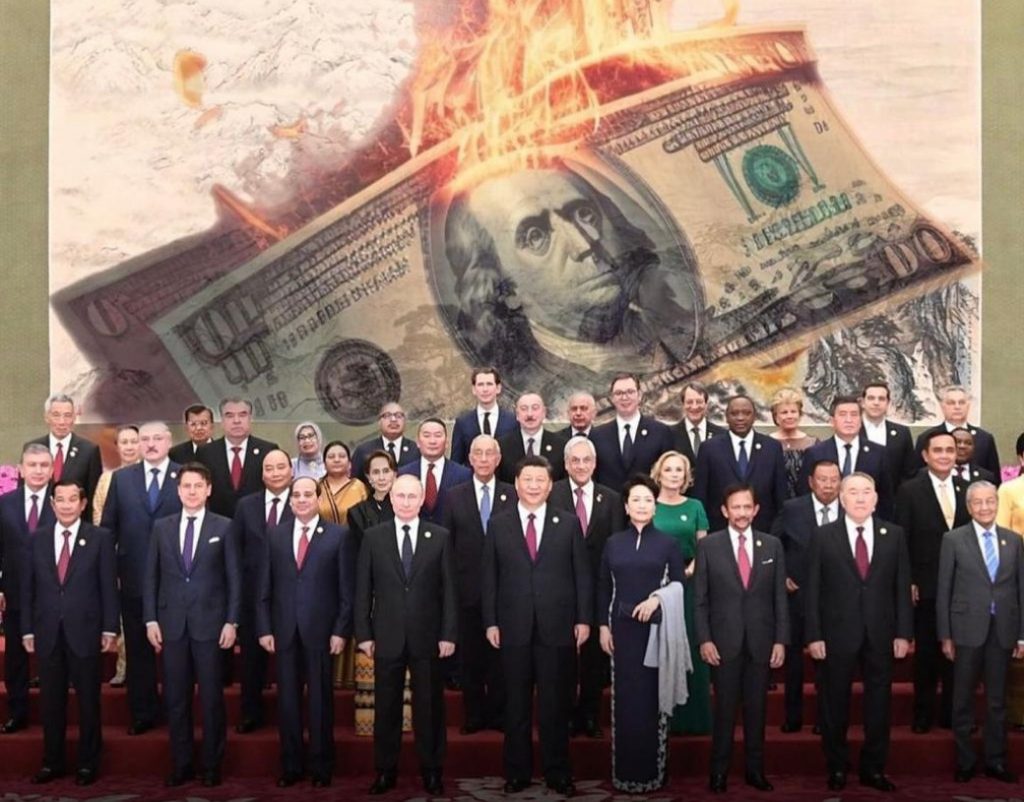The BRICS alliance is looking to suffocate the U.S. dollar by using local currencies to settle cross-border transactions. BRICS members India, China, Russia, the UAE, and Saudi Arabia have already started using local currencies for international trade settlements. China and Russia are advancing in convincing other developing countries to follow suit and cut ties with the U.S. dollar. The move could be devastating to the U.S. economy as America will find it hard to fund its deficit.
Also Read: BRICS: Analyst Predicts Biggest Economic Crash in US History
If the U.S. fails to import the dollar, the currency will circulate back to the homeland and lead to inflation. The move could make prices to skyrocket with housing, rent, and basic daily necessities will turn expensive and unaffordable. In this article, we will highlight the 5 American sectors that could be affected if BRICS ditches the U.S. dollar for trade.
BRICS: 5 U.S. Sectors To Be Affected If Dollar is Ditched As Payment


A total of 5 U.S. financial sectors could be affected of BRICS stops using the dollar for international trade. The financial sectors that could begin to decline include banking, foreign exchange, tourism, and production. Below is the 5 sectors that will be impacted if the U.S. dollar is not used for settlements among BRICS members.
Also Read: BRICS: $2 Billion Copper Trade To Be Paid In Chinese Yuan, Not US Dollar
- Banking and Finance
- Technology and Fintech
- International Trade and Investment
- Consumer Goods and Retail
- Travel and Tourism
First and foremost, the banking and financial sector will be the hardest hit as foreign exchanges will begin to decline. Secondly, BRICS is looking to create their own internet services and not depend on American technology for news and social media. Thirdly, foreign investors will stay away from the U.S. dollar as the debt crisis and deficit will only worsen.
Also Read: BRICS: India Likely Dumped US Dollars To Limit the Rupee’s Loss
In addition, if the U.S. dollar comes back home, the cost of day-today essentials will become further expensive. Finally, tourists will begin to pay local currencies for their travels and leave the U.S. dollar behind. China and Singapore are already making tourists to pay in local currencies in their respective countries and not the U.S. dollar.
In conclusion, BRICS has several schemes up its sleeves that is aimed to hurt the prospects of the U.S. dollar. Moreover, if the Biden-administration does not act quickly to counter BRICS, stopping the dollar’s decline could become much more harder.





